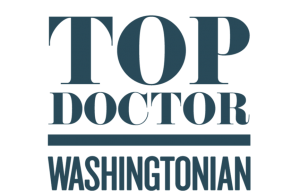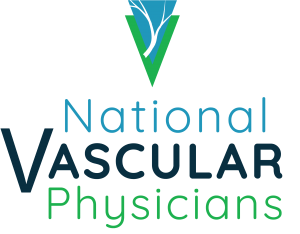Vascular Care near Suitland-Silver Hill in National Harbor
Vascular Doctors in National Harbor Near Suitland-Silver Hill.
Conveniently located near Suitland-Silver Hill in the National Harbor on the banks of the Potomac River, National Vascular Physicians offers a fresh take on medicine with minimally invasive care for a variety of vascular conditions. Doctors Alexander Kim and Emmett Lynskey noticed the lack of quality care opportunities within Oxon Hill so they used their years of expertise to put their innovative approach into practice.
Vascular Medical Center Near Suitland-Silver Hill in National Harbor
Quality Healthcare Close to Suitland-Silver Hill in National Harbor
Strategically positioned for your benefit, our office near Suitland-Silver Hill in National Harbor brings advanced vascular care nearby. Plus with outpatient procedures and (much) less wait times than traditional hospitals offer, NVP also gives patients peace of mind knowing they’re going to be taken care of on time – and on their time.
If you’re suffering with any vascular disease such as peripheral artery disease (PAD), enlarged prostate, uterine fibroids, vein or artery disease, or liver cancer, please do not hesitate to contact us today.

About Our Practice
BETTER SERVICE FOR PATIENTS & REFERRERING DOCTORS
National Vascular Physicians is conveniently located in National Harbor. Most treatments are performed in our center using minimally invasive techniques, so that you can go home the same day and can get back to your life quickly. Our physicians can also perform procedures in hospitals when a hospital setting is required.
Communication and transparency are key at NVP. We partner with you and your healthcare team throughout your entire medical journey – from start to finish – and offer treatment options uniquely tailored to you.
No more frustration trying to schedule an appointment or waiting for information. We can put you in touch with one of our specialists quickly – sometimes even the same day.
Contact Us today for your appointment and see what we are all about.


Meet Our Physicians
National Vascular Physicians (NVP) offers revolutionary minimally invasive, non-surgical treatment options performed by our award-winning physicians in a convenient outpatient setting outfitted with the latest medical equipment. Our approach is to offer patients the highest quality evidence-based vascular and interventional services based on the leading-edge research and widely accepted scientific techniques. Our board-certified Vascular and Interventional Physicians partner with you and your healthcare team throughout your entire medical journey – from start to finish – and offer treatment options uniquely tailored to you. Contact Us today for your appointment and see what we are all about.
Uterine Fibroids & Women’s Health
What are fibroids?
Fibroids, also known as uterine fibroids, leiomyomas, or myomas, are benign (non-cancerous) tumors that grow within the muscle tissue of the uterus.
Who is at risk?
Uterine fibroids are the most common tumors within the female reproductive system. 70-80% of women will develop fibroids. Women of African descent are 2-3 times more likely to develop uterine fibroids as women of European descent.
What does the research say?
- Uterine fibroids are the most common diagnosis for women undergoing hysterectomy
- Success rate of uterine fibroid embolization approaches 90%
- Uterine fibroid embolization is safely performed in an outpatient basis
- The American College of Obstetrics and Gynecology (ACOG) recognizes uterine fibroid embolization as a safe and effective treatment for fibroids.
Spine & Joint Care
Suffering from Arthritis Pain/Frozen Shoulder?
Find out how Adhesive Capsulitis Embolization can help you.
Adhesive capsulitis embolization is an interventional radiology treatment for frozen shoulder that offers highly effective and long-lasting relief of the pain and stiffness caused by this chronic joint disease.
Suffering from Spinal Compression Fractures?
Find out how Kyphoplasty can help you.
Kyphoplasty is a minimally invasive surgery used to treat a spinal compression fracture. Spinal compression fractures occur primarily in spinal vertebrae that have been weakened by osteoporosis.
Vein Disease
What is a Varicose Vein?
Varicose veins are enlarged veins most often found in the legs. These veins develop when faulty valves in the veins allow blood to pool in the leg veins. These veins can appear enlarged, swollen, twisting and blue or purple in color. Patients may experience symptoms such as aching legs, swollen ankles and spider veins. Some patients with advanced disease may experience skin discoloration, itching and pain in the legs.
Who is at risk?
- Female sex
- Pregnancy
- Increased weight
- Smoking
What does the research say?
- Minimally invasive endovenous therapies are as effective as surgery
- Endovenous therapies have a 98% initial success rate
- Nonsurgical therapies may have faster recovery times than surgery
Benign Prostatic Hyperplasia (BPH)
What is Benign Prostatic Hyperplasia (BPH)?
Benign prostatic hyperplasia (BPH) is a benign (non-cancerous) condition that develops when the prostate and the surrounding gland enlarges. As the gland grows, it can squeeze the urethra, the tube in the penis connected to the bladder, blocking the flow of urine. The bladder becomes thicker as it works to overcome this obstruction but over time it may weaken and lose the ability to urinate normally.
Who is at risk?
- Nearly all men will develop BPH as they age.
- By 60, 50% of men will have some signs of BPH.
- This increases to 90% of men by age 85.
What does the research say?
- Prostate artery embolization (PAE) is an effective treatment for symptoms of BPH
- PAE has been demonstrated to be as effective as TURP in improving symptoms and quality of life in some studies
- Most studies show a much lower procedural risk with PAE compared to surgical alternative
Liver Cancer Care
What is Liver Cancer?
- Liver cancer can be classified as primary or secondary (metastatic).
- Primary liver cancers develop from normal liver tissue and include hepatocellular carcinoma (HCC) and cholangiocarcinoma (bile duct cancer).
- Secondary liver cancers, also known as metastatic liver cancer, originate in tissue outside of the liver but spread to the liver
Who is at risk?
- Patients with a history of underlying liver disease, such as cirrhosis, hepatitis B or hepatitis C are at higher risk of developing primary liver cancer
- Patients with prior history of cancer development outside of the liver, such as colon, pancreas, breast, prostate and kidney are at a higher risk of developing metastatic disease to the liver.
What does the research say?
- Local therapies to the liver can improve the quality and quantity of life for many cancer patients
- For some patients with liver cancer, local therapies can provide a cure for their disease
- Unlike surgery, many local therapies can be delivered alongside many chemotherapy, targeted therapy and/or immunotherapy
Artery Disease
What is Peripheral Artery Disease (PAD) ?
Peripheral artery disease (PAD) is a common problem in which narrowed arteries reduce blood flow to the legs and feet. The narrowed arteries are often due to a buildup of calcium and/or fatty deposits in the arteries. Patients can develop symptoms of PAD including muscle pain or cramping with activity such as walking or running, leg wounds, and in some cases pain at rest.
Who is at risk?
- Increasing age, especially after 50
- Smoking
- Diabetes
- Family history of heart or artery disease
- High cholesterol levels
What does the research say?
- Methods to open up arteries through minimally invasive endovascular techniques have improved outcomes for certain types of PAD
- Early therapy may reduce the risk of limb loss









